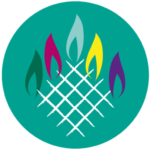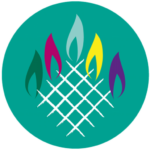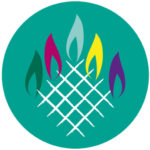Introduction – The Power of Music at The St Lawrence Academy
‘Creating Life-long Independent Learners’
Music is all around us. It is the soundtrack to our lives. Music connects us through people and places in our ever-changing world. It is creative, collaborative, celebratory and challenging. In our academy, music brings communities together through the shared endeavour of whole-school singing, ensemble playing, experimenting with the creative process and, through the love of listening to friends and fellow pupils performing. The sheer joy of music making feeds the soul of our community, enriching each student while strengthening the shared bonds of support and trust which makes us great.
Music is both a practical and academic subject. Musical learning at The St Lawrence Academy is about thinking and acting musically. This means that music lessons are about learning in and through music, not solely about music. Our main intention in the delivery of our music curriculum is:
- To create independent learners through the development of key skills.
- To develop enquiry skills through problem solving.
- To ensure all students have a creative outlet to enhance their life chances.
- To highlight transferable skills from the subject area to other subjects, careers and life experiences.
- To develop and maintain the importance of collaboration with others in learning and in life experiences.
- To cultivate a love of life long learning.
- To provide opportunities to display their talents to a wider audience.
Recent research suggests that music engagement not only shapes our personal and cultural identities but also plays a role in mood regulation. Our music curriculum addresses this in abundance focusing on:
- creativity
- enjoyment
- active learning
- inclusion
- opportunities to make music together
- singing
- expressing thoughts and feelings
There is further research that shows instrumental and vocal learning develops a range of generic learning skills which are important to wider education: there is a growing weight of evidence that learning an instrument helps to develop executive functioning of the brain,
perseverance and resilience, and self-esteem. Therefore at The St Lawrence Academy we give all students the opportunity to receive peripatetic music lessons and encourage all students to attend extra curricular activities. Being part an ensemble also enables pupils to:
- Develop a good understanding of team work from being part of an ensemble;
- Learn how to both take a lead and respond to the leadership of others;
- Understand how group identity can both develop and inform personal growth.
Music plays an integral part in our daily and seasonal worship at The St Lawrence Academy with all Ks3 students singing during assemblies and all students participating in our church services.
Music is a universal language. It transcends cultures and generations, bringing people together in moments of shared joy and unending connection. It boosts our mood and refreshes our souls.
KS3
Our KS3 curriculum focuses on progression of skills and the practical application of Knowledge learnt with the key focus of providing all students with the ability to become a life-long independent learner. To inspire our students we learn to perform and compose on a variety of instruments and use ICT as an integral part of our music learning providing students with the skills to continue into GCSE, a musical career or simply their own interests.
All schemes of work develop skills and knowledge within performing, composing and listening and appraisal of music.
Y7 – receive one lesson a week
In Y7 students will learn to read music through traditional notation with the key focus of then implementing this skill in performing and composing music both acoustically and also through the use of ICT. Students are encouraged to work independently and with others. Our students are then encouraged to use their knowledge learnt to identify key elements of music in listening and learn the skills of identifying instruments, major/minor, tempo, texture and pitch. Our topics include I’ve Got Rhythm, Melody Makers and Band Skills.
Y8 – on a 10 week rotation with Drama, Food and Technology
In Y8 students extend their key knowledge learnt in Y7 by learning about accidentals, chords, structure and atonality. Our topic is ‘Naturally Flat Sharp as a tack’.. Students will learn about accidentals by composing using the blues scale and develop their knowledge of chords by learning inversions and cluster chords. They will also compose dissonant music using their knowledge of accidentals and chromaticism. In performance work students will extend their keyboard skills by performing in ¾ time and outside the basic 5 finger position alongside performing full finger chords on the keyboard. Knowledge of the key elements of music studied since Y7 will also continue to be embedded through listening activities.
Y9 – receive one lesson a week
Our Y9 curriculum focus is on development of music ideas. The topics studied are ‘All About The Bass’,’ Minimalism’ and ‘So You Want to be a Popstar’. Alongside looking at how to develop musical ideas in composition work and performing extended pieces students are encouraged to work more independently allowing them to experiment with their own ideas and work collaboratively to produce and perform work. Students’ listening skills are more focused and they freely analyse pieces of music whilst listening, identifying all key features learnt in the past 3 years.
KS4
Our students at KS4 follow the EDUQAS GCSE syllabus. In this syllabus students will study 4 areas of music:
- Musical Forms
- Ensemble Music
- Popular Music
- Film Music
Through these units the GCSE is then split into 3 areas:
- Composing
- Performing
- LIstening and Appraising
Composing
Students will be required to compose two pieces of music, one free choice and one from the set briefs set out by the exam board. During the 2 years students will experience composing different styles of music through the areas of music studied above to gain experience and knowledge of each of these which will then inspire their own chosen traits within composing. This element of the course is worth 30% of the course and will be assessed by the teacher and moderated by the exam board.
Performance
Students will be required to perform two pieces of music on their chosen instrument, this can include computer sequencing. One piece will be a solo and the second piece will be an ensemble piece. The recommended standard of performance is Grade 3, however at the St Lawrence Academy this is not a stipulation for choosing the subject, we are fully inclusive and all students are accepted equally onto the course. This element of the course is worth 30% and is marked by the teacher and moderated by the exam board.
Listening and Appraising
Students will be required to sit an hours listening exam which relates to the four areas of music studied. Knowledge of the following will be tested through listening to six pieces of unknown music and two set works:
Elements of Music – melody, harmony, tonality, form and structure, dynamics, sonority, texture, tempo, rhythm, metre.
The context – the time, place or purpose of the music
Musical Language – the list of musical terms in Appendix C of the specification, notes in the treble and bass clef and any specific vocabulary which goes with the set works.
Careers
Students will gain a deeper understanding of a number of transferable skills and practice applying these to new situations, developing analytical and problem solving skills. Through studying music, you will be equipped with the skills to succeed in your next steps.
Careers in Music include:
- Music producer
- Music therapist
- Musician
- Private music teacher
- Secondary school teacher
- Sound designer
- Sound engineer
- Sound technician, broadcasting/film/video
- Special effects technician
- Acoustic consultant
- Arts administrator
- Broadcast engineer
- Choreographer
- Community arts worker
- Event manager
- Marketing executive
- Private tutor
- Radio broadcast assistant
- Radio producer
- Talent agent
- Theatre stage manager
- Curriculum Principles
- Learning Journey
- School Music Development Plan




